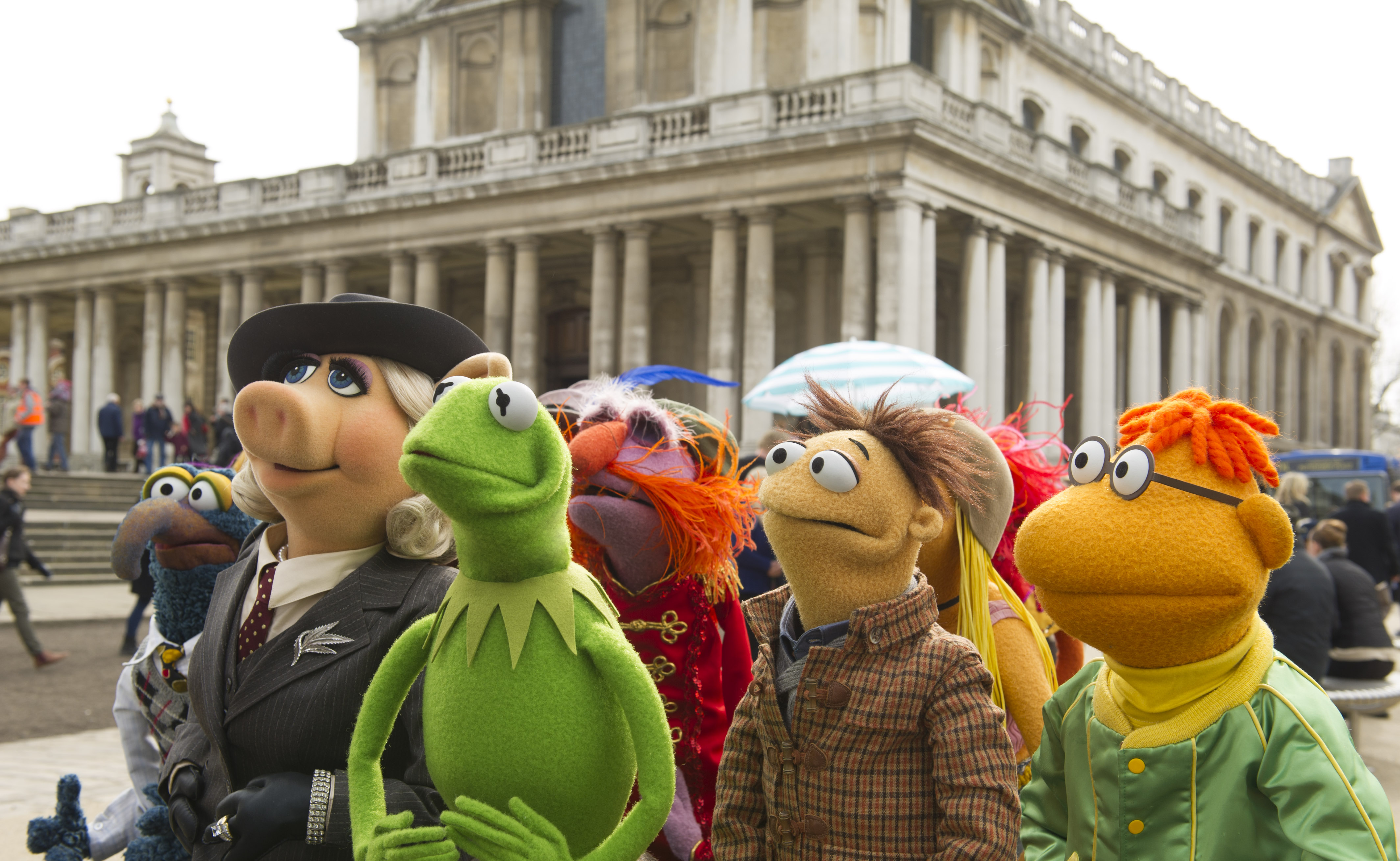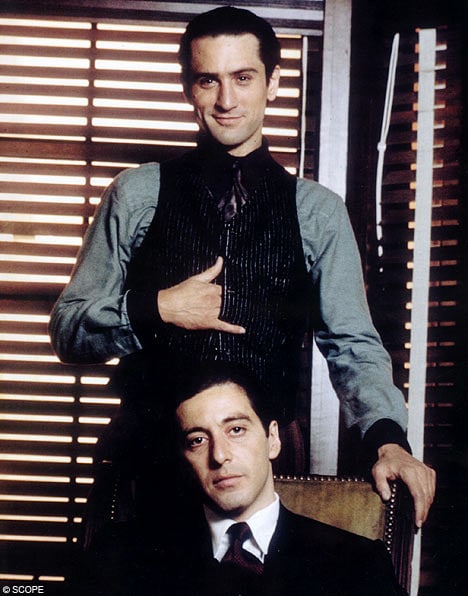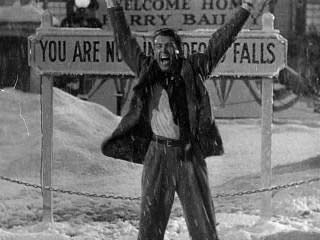 |
| A striking resemblance! |
The film begins moments after its predecessor The Muppets, left off as the gang try to determine what to do now that they've made a successful comeback. After a snappy start with the first of the film's numerous musical numbers the plot thickens with the entrance of smarmy theater agent Dominic Badguy (pronounced bad-gee and played by Ricky Gervais) who convinces the Muppets to take their act on a tour of Europe. Despite his initial misgivings, the gang is eventually able to convince Kermit to sign them up for the tour and almost immediately begin in-fighting over changes in the act. Kermit tries to mediate between the group but his efforts to placate his cast mates results in a disastrous opening in Germany that still strangely receives rave reviews from local critics. Despondent over his inability to manage the cast, Kermit goes for a walk to take in the local sights and clear his mind only to find himself jumped by a lookalike frog and arrested by local authorities who believe that Kermit is the other frog, a notorious criminal mastermind known as Constantine. Following the arrest, Kermit is sent to a Russian gulag in Constantine's place while the real Constantine goes on to assume Kermit's identity. It is soon revealed that Dominic is actually an underling to Constantine and that the European tour was merely a set-up for Kermit to take the fall for the pair's crimes and ensure that Constantine regained his freedom. Meanwhile, Kermit struggles to adjust to prison life as Constantine ingratiates himself within the lives of the other Muppets and enjoys his new celebrity status. Eventually the two frogs' paths cross again when Kermit stages an escape worthy of cinema's classic capers and the Muppets begin to suspect something is amiss with 'Kermit'.
 |
| The unlikeliest partnership since Sidney Poitier and Rod Steiger |
While there have been numerous entries in the Muppets franchise over the last three decades, Muppets Most Wanted is perhaps the film that is the most true to the winning combination of offbeat humor and clever commentary that made up the spirit of the original films. Throughout the film, the setting and plot sends up classic caper and crime films of the Cold War era without ever dismissing the merits of those earlier films. The references to East and West Berlin, Russian gulags, and Eastern European masterminds puts the film perfectly in line with the likes of such genre classics as the James Bond franchise and The Manchurian Candidate. Similarly, the case of mistaken identity and use of prison escapes and plans for world domination make the plot a kid-friendly companion to classic suspense films, particularly the works of Alfred Hitchcock and heist films such as The Thomas Crown Affair. The film even goes so far as to mimic the fashions and political tensions of the era with Eastern Europe shown in muted colors and poverty reminiscent of the Soviet years, and plays up the comedic effect of a heated rivalry between the representatives sent by Interpol (Ty Burrell) and the FBI (Sam the Eagle).
Although the film's makers may have simply chosen this retro effect in order to highlight the vintage feel of its caper plot, I believe that they did so in an effort to make the film a throwback to both the original Muppet films and the era in which they were made. The first three films in the franchise, The Muppet Movie, The Great Muppet Caper, and The Muppets Take Manhattan were all shot and released during the 1970's and 1980's; an era in which the headlines were dominated by the threat of a conflict between the Soviet Union and the western world. These films also in many ways echoed the films of Hollywood's Golden Era through the use of vintage plot devices, 30's and 40's slang, and costumes befitting those eras. By producing this most recent film as a throwback to a more recent but still bygone era, the Muppet franchise has truly returned to form by carrying on its tradition of classic comedy for fans of all decades.
Muppets Most Wanted is an excellent film for fans of the franchise looking for a bit of nostalgia and those who have yet to be introduced to Jim Henson's troupe of puppets. The equal parts witty and thrilling script ensures that the film will entertain kids looking for a fun adventure and adults looking for classic comedy, making this a film that truly is for the whole family. The film also possesses an added bonus for adults and classic film fans through its function as a loving send-up of both Cold War era cinema and the original Muppet films. Muppets Most Wanted is a return to form for the precocious puppets that will be sure to please lovers, dreamers, and maybe even you.
 |
| The Muppets spreading their natural star quality |








+AFter+Dark+Horror+Movies2.jpg)








